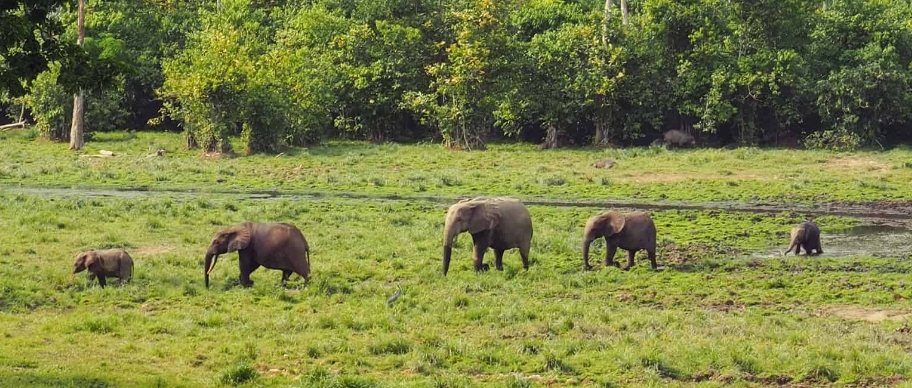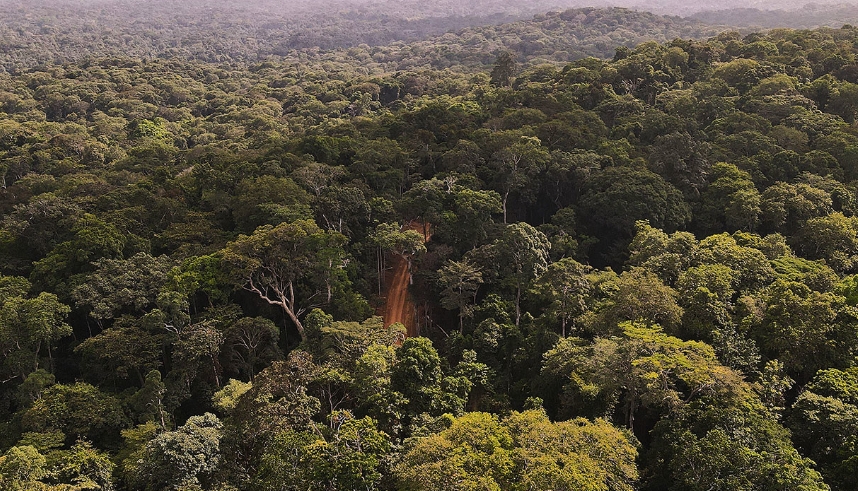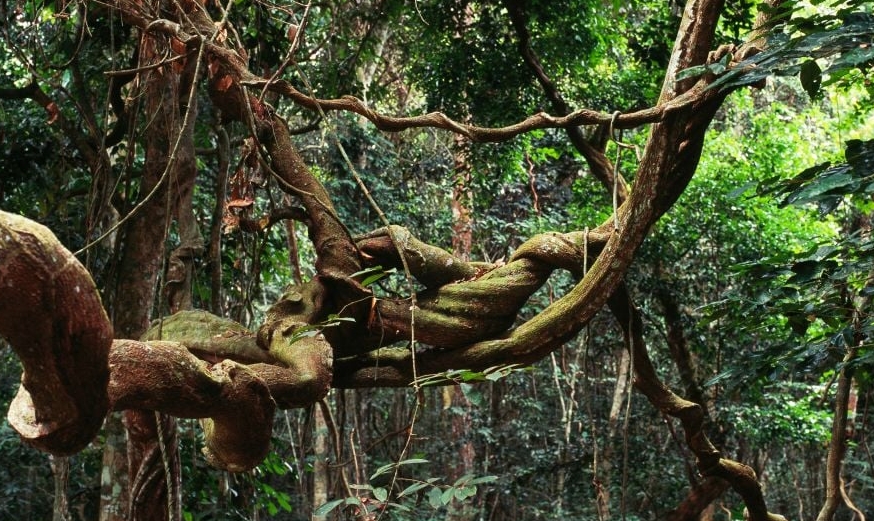Timid beginnings of solutions to preserve tropical forests

At the One Forest Summit, around twenty countries identified strategies to safeguard tropical forests from destruction. The initial measure primarily emphasized the significance of these vast yet delicate carbon reservoirs.
During the inaugural One Forest Summit in Libreville on March 1 and 2, around twenty countries represented by states from major forest basins, such as the Amazon, South-East Asia, and Congo, convened to explore solutions to protect tropical forests, which are the primary carbon sinks on a global scale, while not impeding the development of concerned countries. Co-hosted by France and Gabon, the summit also gathered various other stakeholders, including international organizations, local authorities, corporations, investors, associations, and scientists.
The participants at the One Forest Summit acknowledged the pressing need to stop and reverse deforestation by 2030. In the Libreville Plan, adopted at the end of the conference, they highlighted the importance of providing extensive protection to critical reserves of carbon and biodiversity, including mangroves, peat bogs, and primary forests, which house umbrella species such as gorillas, orangutans, elephants, jaguars, and other species that sustain their ecosystems. The signatories believed that the degradation of these reserves would result in irreversible consequences.

According to the summit attendees, safeguarding the forest does not necessarily require barring human intervention altogether. They emphasized that a variety of approaches could be employed, “ranging from strong protections such as national parks to sustainable natural resource management.” Ideally, all efforts would benefit local communities. The plan thus emphasizes the “economic opportunity” of a bioeconomy approach, as well as the local and sustainable transformation of forest products.
Forest nations that prioritize nature conservation should be rewarded for their efforts by the international community. To achieve this, the summit organizers have reintroduced the Positive Conservation Partnerships (PCPs) proposed by France at COP27. These agreements, signed by countries committed to preserving their critical carbon and biodiversity reserves, aim to provide them with increased international funding, followed by compensation for their efforts from other states or private actors in exchange for “biodiversity certificates.” To kickstart the initiative, an initial budget of €100 million has already been allocated to this effort by France, Conservation International, and the Walton Foundation.
The return of carbon credits
Representatives from the financial industry unveiled an action plan aimed at expediting the development of carbon credit projects with excellent environmental integrity. However, several associations, including CCFD-Terres Solidaires, criticized this solution for its unreliability and its potential use as a greenwashing tool. Canopée and Reclaim Finance drew attention to the billions of dollars in financial aid provided by banks for soybean production, the leading cause of deforestation since 2021, and argued that the response remained inadequate.

NGOs are urging banks to take a more assertive stance by linking their loans to the implementation of measures to curb deforestation.
“We already have solutions to end forest destruction,” says Klervi Le Guenic, campaign manager at Canopée.
French banks must accept their responsibilities and sever ties with companies that are destroying these precious ecosystems. These efforts can rely on the maps of critical carbon and global biodiversity reserves that the scientific community will establish over the next five years under the One Forest Vision initiative, which will also include measurements of tropical forest carbon sequestration levels.
Millions of promised jobs
Around fifty business leaders assembled at the “One Forest Business Forum” and launched the “10by30” initiative, aimed at creating ten million jobs in forest-sustainable activities by 2030. Among the measures taken are the promotion of agroforestry combined with agro-industrial activities, the establishment of firewood plantations to curtail deforestation, the promotion of standardized industrial practices on environmental, social, and governance issues, the implementation of circular economy principles in supply chains, and the provision of training opportunities.

Gabon, France, and Canada have suggested the creation of an intergovernmental platform to promote the use of sustainable wood and bio-based materials in construction as a substitute for concrete and cement, particularly in African urbanization plans. This coalition has nine member countries, including Cambodia, Ivory Coast, Republic of Congo, Uganda, United Kingdom, Zambia, France, Gabon, and Canada. Another coalition called “One Forest Guardian” has also been established by Uganda, France, and Gabon to nominate the indigenous population’s traditional forest monitoring practices for inclusion in UNESCO’s World Heritage List in 2024.
Although a “One Forest Youth Summit” was organized by young people from the Congo Basin, the participation of local civil societies in the discussions and the presentation of their own solutions were not fully facilitated during the summit. While the summit succeeded in emphasizing the critical role of forest ecosystems in preserving the climate, the practical outcomes were primarily limited to those initiated by decision-makers. Additional events are expected to advance climate financing, including the upcoming summit for a new global financial agreement, scheduled to be held in France in June.